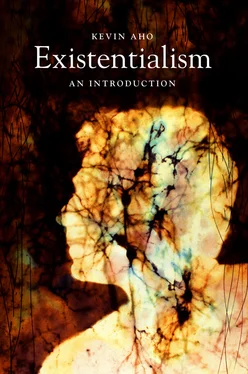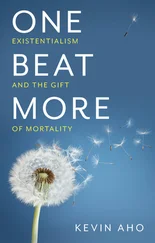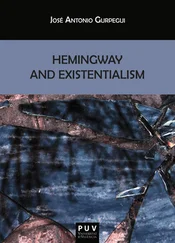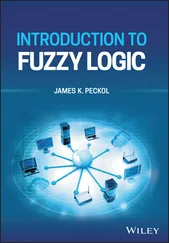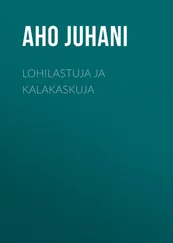Kevin Aho - Existentialism - An Introduction
Здесь есть возможность читать онлайн «Kevin Aho - Existentialism - An Introduction» весь текст электронной книги совершенно бесплатно (целиком полную версию без сокращений). В некоторых случаях можно слушать аудио, скачать через торрент в формате fb2 и присутствует краткое содержание. Год выпуска: 2013, ISBN: 2013, Издательство: Polity, Жанр: Философия, на английском языке. Описание произведения, (предисловие) а так же отзывы посетителей доступны на портале библиотеки ЛибКат.
- Название:Existentialism: An Introduction
- Автор:
- Издательство:Polity
- Жанр:
- Год:2013
- ISBN:978-0745651422
- Рейтинг книги:3 / 5. Голосов: 1
-
Избранное:Добавить в избранное
- Отзывы:
-
Ваша оценка:
- 60
- 1
- 2
- 3
- 4
- 5
Existentialism: An Introduction: краткое содержание, описание и аннотация
Предлагаем к чтению аннотацию, описание, краткое содержание или предисловие (зависит от того, что написал сам автор книги «Existentialism: An Introduction»). Если вы не нашли необходимую информацию о книге — напишите в комментариях, мы постараемся отыскать её.
Existentialism: An Introduction
Existentialism: An Introduction — читать онлайн бесплатно полную книгу (весь текст) целиком
Ниже представлен текст книги, разбитый по страницам. Система сохранения места последней прочитанной страницы, позволяет с удобством читать онлайн бесплатно книгу «Existentialism: An Introduction», без необходимости каждый раз заново искать на чём Вы остановились. Поставьте закладку, и сможете в любой момент перейти на страницу, на которой закончили чтение.
Интервал:
Закладка:
Similarly, when Kierkegaard claims that the ‘individual is higher than the universal,’ he is not suggesting that religious faith requires getting rid of the ethical. This is impossible. The point is that, in some cases, faith may supersede any moral obligation. But the ethical is still present in the anguished struggle that the individual endures in breaking this obligation. If the content of the ethical sphere were completely absent, then Abraham would not be overcome with ‘fear and trembling.’ The paradox that Kierkegaard is expressing is that the passionate, life-defining commitment required in being true to oneself cannot be expressed or made intelligible in ethical terms of right and wrong; it is a commitment that is beyond rational comprehension. Becoming a self, then, “remains in all eternity a paradox, inaccessible to thought” (1985, 85). This idea, that in order to be authentic we must be willing to go beyond universal moral principles, is developed further by Nietzsche, who claims that these principles breed conformism and weakness, preventing individuals from wholly accepting themselves and diminishing their ability to create their own lives.
Living with style
There is no way to access Nietzsche's conception of authenticity without placing it within the context of nihilism . For Nietzsche, nihilism means that the very idea of “truth is an error” (1968, 454, 540), and there is no objective or universal justification for our choices and actions. This, however, is not a cause for despair, but for celebration. It frees us from the bourgeois values of the Western tradition so we can create new values and meanings that reflect our own temperaments and styles of living. In this sense, Nietzsche's account of being true to oneself is unique in the canon of existentialism because it is not so preoccupied with gloomy themes of death and anxiety. For Nietzsche, the confrontation with nihilism is a cause for rejoicing, cheerfulness, and laughter because it opens up new and exciting possibilities for self-creation. In The Gay Science , he writes:
After all, these immediate consequences, its consequences for us, are, contrary to what one might expect, not at all sad and gloomy, but rather like a new kind of light that is hard to describe, a new kind of happiness, alleviation, cheering, encouragement, and dawn. When we hear the news that the ‘old God is dead,’ we philosophers and ‘free spirits’ feel as if we were struck by the rays of a new dawn; at this news, our heart overflows with thankfulness, wonder, presentiment, expectation. (1995, 343)
Initially, it may seem strange to talk about the possibility of being true to oneself in Nietzsche's philosophy because he rejects the notion of an independent and unified self. The self, as we saw in chapter 5, is nothing more than the dynamic “totality of drives that constitute our being” (1997, 119). This is why Nietzsche claims that “to become what one is, presupposes that one not have the faintest notion what one is” (1967, 9). But if there is no self, no way one ‘ really is ,’ then how can we ever be authentic? To answer this question, we have to first get clear about the underlying principle of Nietzsche's philosophy, the ‘will to power’ ( Wille zur Macht ).
When Nietzsche says, “ The world is the will to power and nothing besides ! And you yourselves are also this will to power and nothing besides!” (1968, 550), he is not referring to the traditional notion of the ‘will’ as a causal agent. As we saw in the previous chapter, Nietzsche rejects the idea of an immaterial substance or will that commands our bodies to act in certain ways. “Is ‘will to power’ a kind of ‘will’ or identical with the concept ‘will’?” he asks. “Is it the same thing as desiring? Or commanding? … My proposition is: that the will of psychology hitherto is an unjustified generalization, that this will does not exist at all . … [It is] a mere empty word” (692). For Nietzsche, will to power refers to the plurality of drives and forces behind all forms of life, revealing that every living thing is striving to grow, flourish, and dominate. Everything, he says, “want[s] to grow, to reach out around itself, pull towards itself, gain the upper hand — not out of some morality or immorality, but because it is alive , and because life simply is the will to power ” (1998, IX, 259). It is important here not to confuse this notion with Charles Darwin's (1809–1882) evolutionary theory of ‘survival of the fittest.’ Nietzsche makes it clear that living things are not simply trying to preserve themselves in order to survive. If this were the case, then when a species evolved to a state where it could comfortably exist, the species would stop striving, growing, and developing. But this is not the case. “Every living thing,” says Nietzsche, “does everything it can not to preserve itself but to become more ” (1968, 688). He repeatedly attacks the ‘English Darwinists’ because he believes the struggle for self-preservation is an exception in the natural world, not a rule, and he believes Darwinists miss this point. “Wanting to preserve oneself expresses a situation of emergency,” writes Nietzsche, “a constriction of the real, fundamental drive of life, which aims at extending its power, and in this willing, often enough puts self-preservation into question and sacrifices it” (1995, 349).
On Nietzsche's account, living things are not just trying to survive but to flourish and thrive and to realize greater possibilities of power and abundances of strength. The roots of the oak tree, for instance, do not just reach into the soil in order to keep the tree upright; the tree is always striving to become more than it is by expanding, overcoming, and dominating its surroundings until it reaches some resistance (Guignon and Pereboom 2001, 113). Indeed, the struggle entailed in overcoming resistances is crucial to the dynamic structure of power because without some resistance or counterforce power cannot be expressed. “Will to power,” as Nietzsche writes, “can manifest itself only against resistances therefore it seeks that which resists it” (1968, 656; see Hatab 2012). The result of such of view, for Nietzsche, is that life simply is “that which must always overcome itself” (2006, 11, 12).
As a manifestation of will to power, human beings, like all other forms of life, are driven by an instinct to overcome resistances and overflow with abundances of power. “What man wants,” says Nietzsche, “what every smallest part of the living organism wants, is an increase in power” (1968, 702). Yet critics have argued that this appears to be a justification for violence, domination, and cruelty, and there is ample textual evidence to support this (e.g., Schütte 1985). In On the Genealogy of Morals , for example, Nietzsche writes,
To talk of right and wrong as such is senseless; in themselves , injury, violation, exploitation, destruction can of course be nothing “wrong,” in so far as life operates essentially — that is, in terms of its basic functions — through injury, exploitation, and destruction, and cannot be conceived in any other way. (1996, II, 11)
But this literal or ‘hard’ interpretation fails to acknowledge the crucial distinction between ‘healthy’ and ‘unhealthy’ expressions of power. Will to power is healthy, for Nietzsche, when it is active and creative, when it is spontaneously discharged from within in a way that goes beyond one's own limitations for the sake of greater strength and expanded possibilities for living. By contrast, a manifestation of power is unhealthy when it is reactive. In these cases, the discharge of power is dependent on others, always coming from something external or outside itself. Nietzsche explains these two manifestations in terms of two different moralities, that of the ‘master’ and the ‘slave.’ “In order to exist at all,” writes Nietzsche, “slave morality … always needs an opposing, outer world; in physiological terms, it needs external stimuli in order to act; its action is fundamentally reaction” (I, 10). But the opposite is the case for the master morality. The master actively creates and affirms his or her own life based on the idiosyncratic needs and projects that matter to them as individuals. For Nietzsche, then, the highest form of power is not reactive and other-directed and has little to do with one's ability to dominate and brutalize others. The strongest and healthiest individuals are self-directed; they are the artists, poets, musicians, and philosophers who have power over themselves to create their own values and meanings. The power to ‘ overcome oneself ,’ then, is the highest value, and it is actualized by those who have the strength to control their base drives, and to sublimate or re-channel them in acts of — artistic and philosophical — creation. This is why, as commentators like Robert Solomon have suggested, the clearest incarnation of this kind of individual is not necessarily the great warriors that Nietzsche often praises, such as Napoleon or Caesar, but figures like “Socrates, Mozart, and even Christ” (1972, 135).
Читать дальшеИнтервал:
Закладка:
Похожие книги на «Existentialism: An Introduction»
Представляем Вашему вниманию похожие книги на «Existentialism: An Introduction» списком для выбора. Мы отобрали схожую по названию и смыслу литературу в надежде предоставить читателям больше вариантов отыскать новые, интересные, ещё непрочитанные произведения.
Обсуждение, отзывы о книге «Existentialism: An Introduction» и просто собственные мнения читателей. Оставьте ваши комментарии, напишите, что Вы думаете о произведении, его смысле или главных героях. Укажите что конкретно понравилось, а что нет, и почему Вы так считаете.
